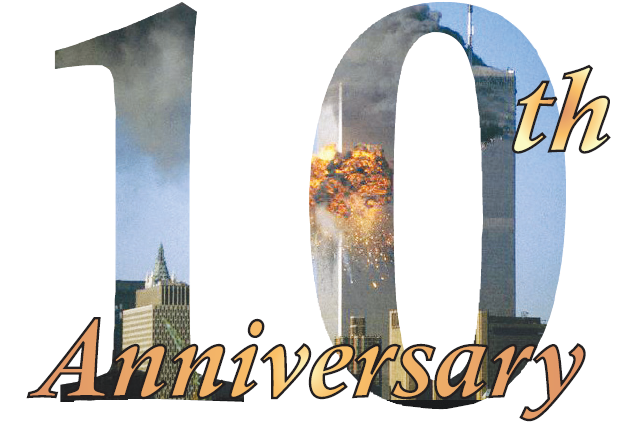Sanaan Khattak ‘14, a Biology and Political Science major, is currently the President of the Muslim Student Association (MSA).
Do you remember where you were on 9/11?
I was living in Bulawayo, Zimbabwe, during the time of September 11, 2001.
What were your initial thoughts when you first learned what happened?
I was very shocked and scared because I had family living in New York at the time. My father’s younger brother, Iftikhar Ahmed, was living with his family just two blocks away from the World Trade Center (they actually saw the second plane crash). I was also upset because New York is the city where I was born, as well as my sister Akifa and my brother Raihaan. We were all concerned for the families that actually had to experience the 9/11 attacks and we were also concerned about what kind of persecution Muslims around the world, especially in America, would have to go through because of a group of people who are defacing Islam, claiming that they commit murder in God’s name? This is not the way of the Muslim.
What is your perspective on 9/11 now and how has it impacted you as a Muslim?
My perspective on 9/11 was that it was a completely corrupted act that was committed by a bunch of mass murderers. They claim that they do this in the name of Islam, but nowhere in the Prophet Muhammad’s teachings did he ever claim that it was okay to kill any innocent people. So I do not understand how these men can claim they are doing this for God. It is completely unjustified by the Sunnah (way of the Muslim) and forbidden by the Quran (the Islamic Holy Scripture).
I would like to give to you an account of deep concern for me, especially because this type of thing still goes on today. I was at the airport with my younger sister, 13 at the time, traveling to Brisbane, Australia, to visit our cousins there. We were traveling on our own. I was only 16. The security I ended up arguing with had held me back for a “random security check.” My sister and I missed our flight and had to stay the night by ourselves in the Dallas International Airport. While it might not seem like a big deal, just missing our flight, I had to deal with my sister crying the whole night because she was scared that we were gonna be stuck in there for a long time. I tried my best to calm her down but you can imagine how frustrating this was for me. Many people have to deal with this similar problem almost every time they travel anywhere.
How has 9/11 impacted you to this day?
As of now, things seem to have gotten a lot better. There is a much better tolerance for Muslims in the United States and also a much better understanding of Islam, which was not quite the case before the Sept. 11 attacks. The ignorance about Islam has begun to fade and many people are starting to learn more about Islam so they can relate with billions of other people and their way of life. Note that I always mention Islam as a way of life, because it is not simply a religion established by God, but it is also a way of life that Muslims should consider in dealing with all matters of day to day life.
Khattak’s final thoughts: “I pray day and night that one day we will be living in a world full of peace and understanding between all races, religions and nationalities. A world that works with one another, nations standing side by side, to help pull one another out of economic struggle, political corruption, disease and famine.”







Be First to Comment